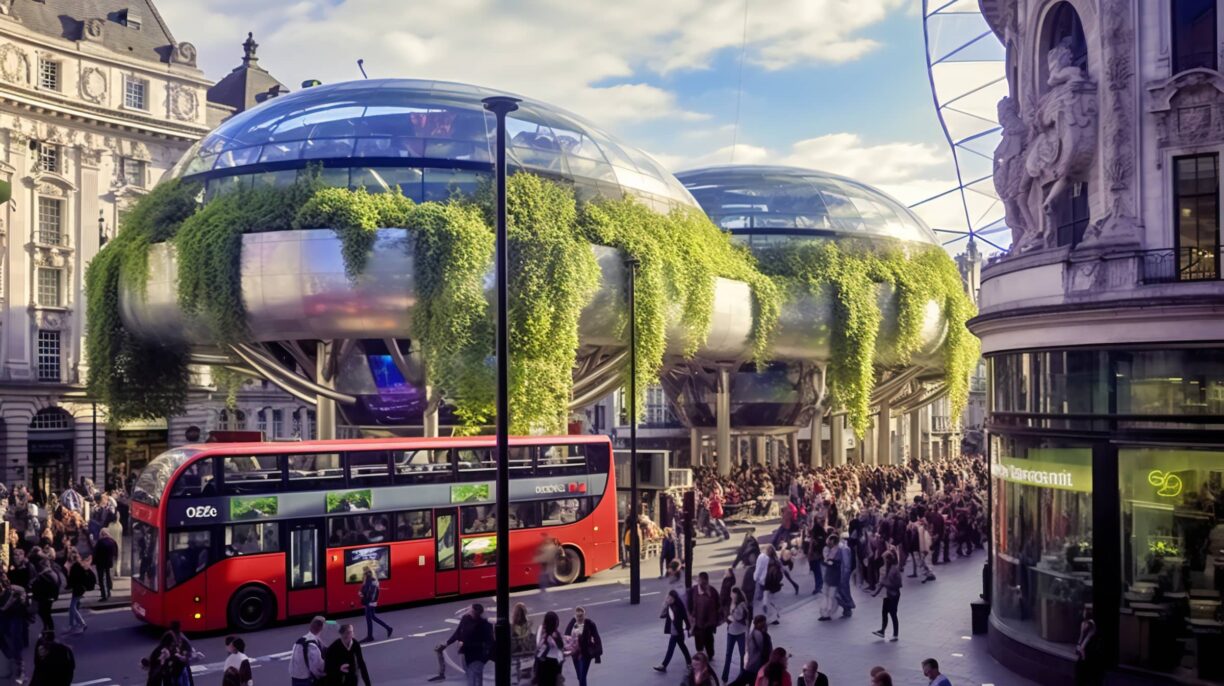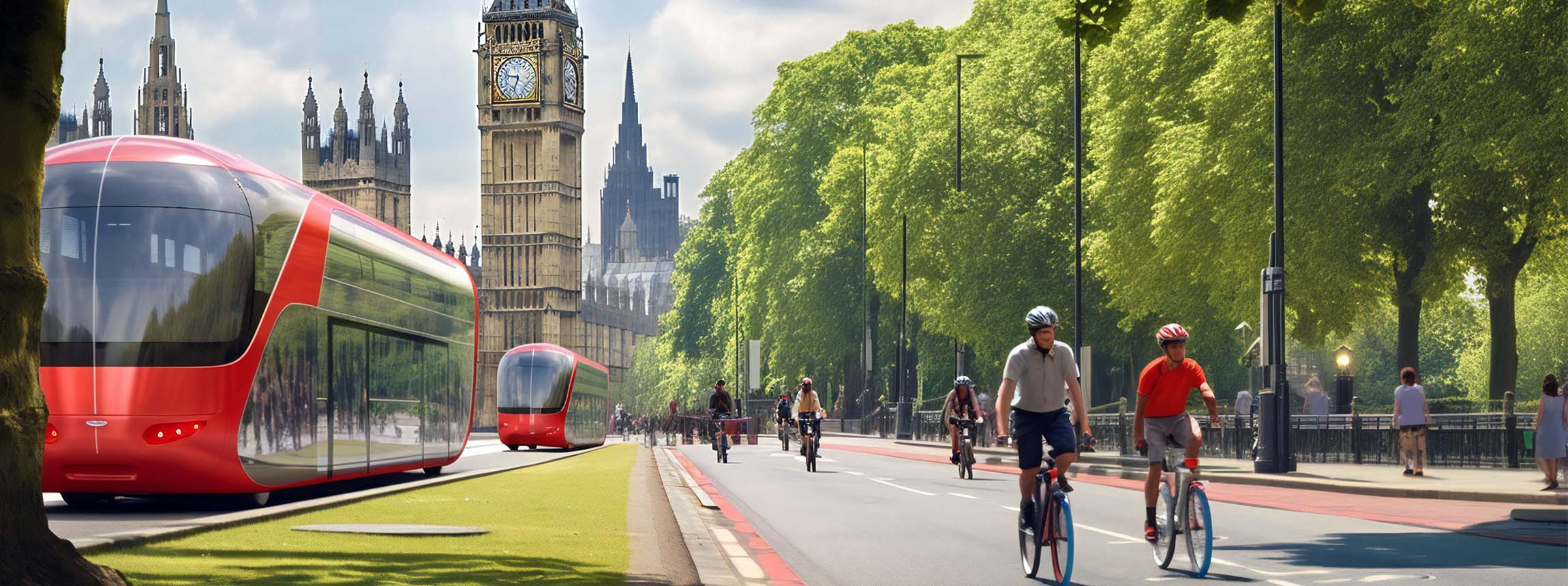Could London be the world’s first car-less city? Brits seem to think so.
Ahead of Car Free Day (Friday, 22nd September) bike subscription service Swapfiets asked Brits where and when they think the world’s first car-less city will be and, importantly, how they think it would look.

Following the results of the survey an AI artist was specially commissioned to create images of what our capital, and other European cities could look like in just over 25 year’s time.
The survey of 2,000 people found that Brits think we’ll see the first car-less city as soon as 2050, and that the UK will beat the likes of China, Saudi Arabia and Europe to it. London ranked as the most likely city in the world to go car-less, followed by Amsterdam, Tokyo, Copenhagen and Beijing.
But what would replace the popular mode of transport? More than half (55%) of Brits think that bikes and e-bikes are most likely to replace cars, whilst a quarter (23%) think scooters will see their heyday. 8 million Brits (12%) think segways could become more commonplace, and 10% even think that we’ll have travelators and hover boards to help pedestrians to get around faster.
This city of the future would have a positive impact on the environment, massively decreasing CO2 emissions. In fact, if all 2.6 million registered cars in London were swapped for a Swapfiets bike, 1.5 million tonnes of CO2 could be avoided each year (based on the average yearly distance people do per year on a bike – 2,500km). That’s the equivalent of:
- 125,000 double-decker London buses
- 110,000 Big Ben bells
- Over 700 London Eye’s
- Almost 3.3 billion pints of beer
Amanda Gandolpho, Swapfiets Brand Director, said: ”We want to make it easy for anyone to hop on a bike. We believe that’s the best thing people can do everyday for themselves, their cities and the planet.
Cycling is freeing, fun and you’d be surprised by how fast you can move through the city on an e-bike. We hope that the pictures inspire people to visualise how more liveable cities will look once they are less congested, with cleaner air, and healthier people and the shift to cycling is a big contributor to that.
Swapfiets bikes are even more sustainable (up to 35% less CO2 emissions) than regular bikes due to our circular business model. We invite people to use a bike and all its benefits without the need to buy/own more things.”
Brits think car-less cities will be much more liveable when asked how they think they will look. There will be less roads but more green spaces and trees (41%), more cycling and pedestrianised zones (40%) and lots more street dining (24%).
Brits would also expect to see new landmarks, more commemorative statues and more sporting facilities.Using these findings, Tech Futurist Dan Sodergren and Swapfiets teamed-up with AI artists to visualise what some of Europe’s most prominent cities could look like if they went car-less by 2050, including London, Amsterdam, Copenhagen, Paris and Berlin.
Dan Sodergren, Tech Futurist, said: “Like many, I dream of a future less dependent on automobiles. This societal shift promises not only to better our environment but also to redefine our urban spaces—think walkable pedestrian zones, extensive cycling paths, and an influx of green spaces to aid in the battle against climate change.
“While the road to this idyllic future might be challenging, the rewards promise to be bountiful. Armed with technology, we must resiliently undertake this transformative journey starting as soon as possible.
We needn’t aim for a world entirely without cars, but one significantly leaner on them, and we owe it to the next generations to make this happen.
“This crucial journey must begin now—before it’s irreversibly too late.”
These are the cities Brits think will be the first to go car free:
- London
- Amsterdam
- Tokyo
- Copenhagen
- Beijing
Top five alternative modes of transport Brits think would be most common in a car-less city:
- Bikes and e-bikes (55%)
- Trams (46%)
- Scooters (23%)
- Segways (12%)
- Travelators (10%)
Top five ways think a car-less city could utilise road space:
- Green spaces, trees, and parts (41%)
- Cycling lanes and pedestrianised zones (40%)
- Tram lines (32%)
- Street dining (24%)
- Sport facilities (12%)
